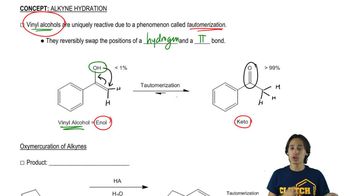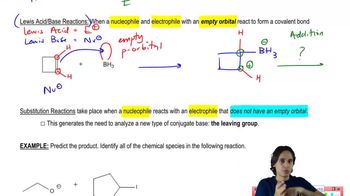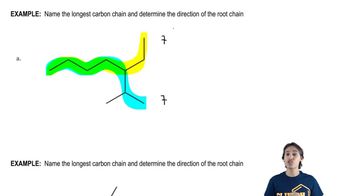Calculate for the following acid–base reactions. Which is the best base to use to deprotonate acetylene and make the acetylide anion?
(b) H2N- + H―C ≡ C―H ⇌ -C ≡ C―H + H3N
 Verified step by step guidance
Verified step by step guidance Verified video answer for a similar problem:
Verified video answer for a similar problem:



 4:19m
4:19mMaster Understanding how to convert terminal alkynes to alkynides. with a bite sized video explanation from Johnny
Start learning